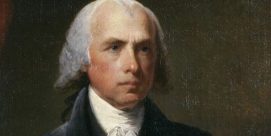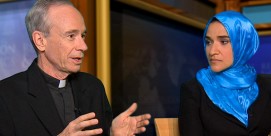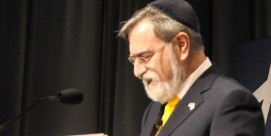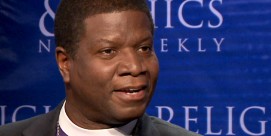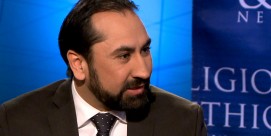Andrew Finstuen: Bloody Shirts and American Unity
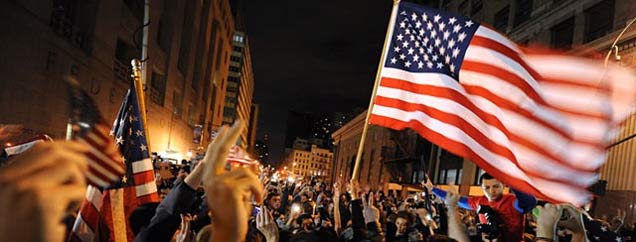
Osama bin Laden is dead. Many Americans have greeted this news with celebration and, like the president, with homage to American patriotism and national unity.
Yet what is it exactly that so many Americans are celebrating and marking as a national achievement? That may seem to be a stupid question. Television anchors, commentators, and the crowds that gathered at the White House and elsewhere know what his death means: this is the man who orchestrated the killing of thousands of Americans on September 11, 2001, a day that spawned the “War on Terror” and brought still more deaths and wounds to Americans.
For President Obama and nearly every other public voice heard so far, this is a moment, as he put it, for Americans to “give thanks to the countless intelligence and counterterrorism professionals” that made this happen and for Americans to “feel the satisfaction of their work and the result of their pursuit of justice.” It is a moment to “think back on the sense of unity that prevailed on 9/11” and understand “today’s achievement” as “a testament to the greatness of our country and the determination of the American people”—national qualities, Obama continued, that remind us “that America can do whatever we set our mind to,” which for Obama includes expanding prosperity, civil rights, and American influence abroad “to make the world a safer place.” But, Obama urged in closing, “Let us remember that we can do these things not just because of wealth or power, but because of who we are: one nation, under God, indivisible, with liberty and justice for all.”
Such expressions of satisfaction, exultation, and national unity at our “achievement” in killing Osama bin Laden are unnerving and chilling. I am not mourning the loss of bin Laden. I am not calling into question those Americans—especially families and friends bereft at the casualties of 9/11 and the ensuing wars—who may feel consolation at his death or use it as an occasion to reflect upon the harsh realities of American national security.
I am offended, however, at the suggestion that any American would take satisfaction in America’s proficient killing units. I am disturbed by references to the unity “that prevailed on 9/11,” a unity that accelerated a preemptive war in Iraq. I am dismayed that the killing of another human being—even Osama bin Laden—warrants songs of “God Bless America” and presidential reminders that “we can do these things” ultimately because of “who we are: one nation, under God, indivisible, with liberty and justice for all.”
I prefer an America that experiences moments of unity without waving a bloody shirt. I prefer an America that does not invoke God so easily both out of respect for the millions in this country who do not identify with the Christian God and out of recognition of the dangers bred by self-righteous claims to God’s favor. The life and death of Osama bin Laden ought to have taught us that much.
Andrew Finstuen is director of the Honors College at Boise State University. His recent book, “Original Sin and Everyday Protestants: The Theology of Reinhold Niebuhr, Billy Graham, and Paul Tillich in an Age of Anxiety” (University of North Carolina Press, 2009), received the American Society of Church History’s Brewer Prize.

